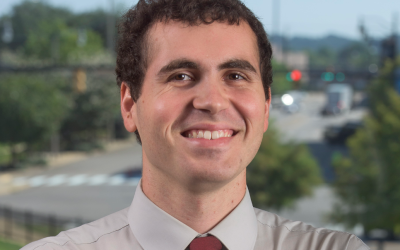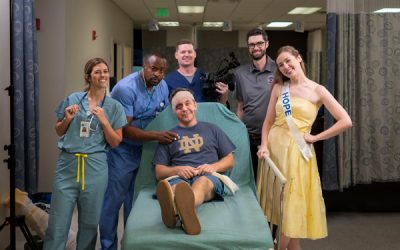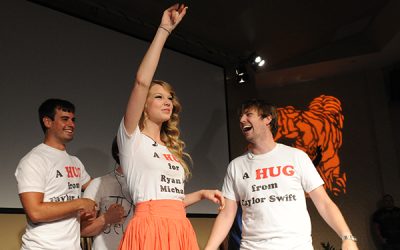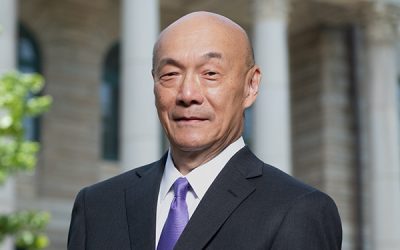Obtaining Harvey Updyke’s confession to poisoning the Toomer’s Oaks jumpstarted Andrew Yawn’s career as a journalist.
SEC Shorts
Down, Set, Ha!By Kate Asbury Larkin '21The paramedic quickly wheels a gurney through the emergency room and into a bay. Waiting nurses frantically begin assessing the situation, starting IV fluids...
Swift Gift
By Jeremy Henderson '04Ryan Leander (left) and Michael Wekall ’10 welcome Taylor Swift to Auburn in 2010.2010 Auburn graduate Michael Wekall recently stepped away from his longtime video production...
Misjudged: Legal Pioneer Judge Alvin Wong ’73
Judge Alvin Wong ’73, Georgia’s first Asian Pacific American judge, on his unlikely path to progress
Fair Play
Fifty years ago, an abstract clause tucked inside new education legislation changed women’s sports forever. How Title IX transformed life at Auburn and opened doors for women beyond the playing fields and courts
Food University
Addressing hidden student hunger at Auburn.
We need your great Auburn stories!
We are looking for the newest, most inspiring stories about Auburn students, faculty, staff and alumni. Stories that touch the head and heart and show Auburn as a modern university that embraces its history and celebrates the Auburn Family every chance it gets.
Have you recently had a job promotion, married or had an addition to your family?
The News Came Second
The date is seared in their minds, branded not only as a bookmark of history, but as a grim milestone of news reporting
Campus Concerts – The Big Question
What was your favorite concert you attended while a student at Auburn?
WEGL celebrates 50 years
Fifty years ago, WEGL 91.1 crackled to life in the first floor of Haley Center. This is the story of how an idea became a radio station, and how that station became a powerful voice for Auburn students.
Life on the Air: Lee Miller ’99
Lee Miller’s journey through the TODAY Show from inside the studio
COVID-19 Frontlines
The fight against COVID-19 has infiltrated every aspect of our lives, from disrupting work to shuttering schools and sidelining almost every event of 2020.
The War Eagle Has Landed
For more than 50 years, Auburn grads have helped turn America’s wanderlust for space travel into a reality. With a new mission to return to the moon and explore Mars, hundreds of Auburn Tigers find themselves the architects of humankind’s next adventure in the Big Blue.
The Mark of Vorovoro
The College of Human Science’s Sustainability in Action trip leaves a mark on you.
Out in the Wild: Jim Morton ’91
A TV producer gets down and dirty following contestants into the jungle.





